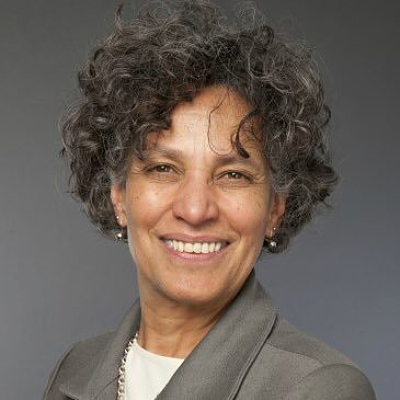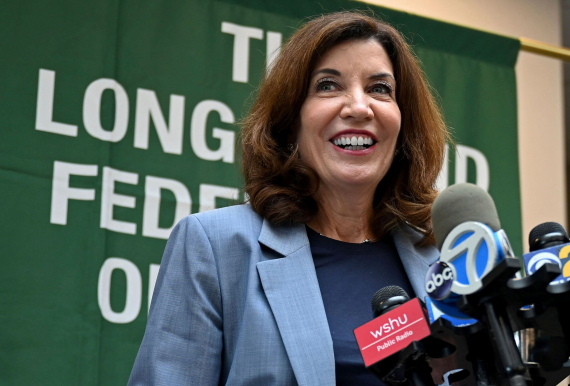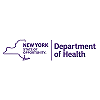- 1. Early life and education
- 2. Career
- 3. Controversy

BASSETT
Mary
Travis
17th Health Commissioner of the New York State Department of Health
Organization: New York State Department of Health (NYSDOH)
Profession: Commissioner
Biography
Mary Travis Bassett is the 17th Health Commissioner of the New York State Department of Health, being appointed to the position by Governor Kathy Hochul on September 29, 2021. From 2014 to 2018, she was the commissioner of the New York City Department of Health and Mental Hygiene. Bassett is the Director of the FXB Center for Health and Human Rights at Harvard University and the FXB Professor of the Practice of Health and Human Rights at the Harvard School of Public Health. She is also an associate professor of clinical epidemiology at the Columbia University Mailman School of Public Health.
Early life and education
Bassett grew up in New York City. She received her B.A. in history and science from Harvard University in 1974, her M.D. from the Columbia University College of Physicians and Surgeons in 1979, and her MPH in Health Services (Health Policy Research) from the University of Washington in 1985. She completed her medical residency at Harlem Hospital Center.
Career
Bassett lived in Zimbabwe from 1985 to 2002, during which time she served on the medical faculty of the University of Zimbabwe. She was appointed deputy commissioner of Health Promotion and Disease Prevention at the New York City Department of Health and Mental Hygiene in 2002.[6] Beginning in 2009, she served as the program director for the Doris Duke Charitable Foundation's African Health Initiative.
In January 2014, she was appointed by New York City mayor Bill de Blasio to serve as New York City Health Commissioner. Since being appointed to this position, which was the largest she had ever held, she helped lead the city's response to the Ebola virus cases in the United States that were first reported in the fall of 2014. She also addressed New Yorkers regarding outbreaks of Legionnaire's disease in their city. In February 2015, she wrote a perspective piece in the New England Journal of Medicine regarding the adverse health effects of racial discrimination against African Americans.
In November 2015, Bassett gave a TEDMED talk, “Why your doctor should care about social justice.” In this talk, Bassett spoke about witnessing the AIDS epidemic firsthand in Zimbabwe and setting up a clinic to treat and educate people about the virus. However, Bassett said she regrets not speaking out against structural inequities during her time in Zimbabwe. Bassett said these same structural problems exist in the United States today, and as New York City's Health Commissioner, she would use every chance she had to rally support for health equity and speak out against racism.
In October 2016, Bassett was awarded the Frank A. Calderone Prize by the Mailman School of Public Health. This prize was established in 1986, and is the most prestigious honor in the field of public health in the United States.
In 2017, Bassett was elected to become a member of the National Academy of Medicine.
She was succeeded as New York City Health Commissioner by Oxiris Barbot in 2018.
Controversy
In October 2017, public health and animal rights activists in New York City launched a campaign to compel Commissioner Bassett to enforce seven public health codes violated during Kaporos, a ritual animal sacrifice that takes place before Yom Kippur, the Jewish Day of Atonement. From October 2017 to July 2018, the activists disrupted four of her public speaking engagements and staged five protests in the lobby of the NYC Department of Health (DOH). The activists alleged that Dr. Bassett was turning a blind eye to the health code violations because the ultra-Orthodox Jews who practice the ritual represent a powerful voting bloc. During Kaporos, an estimated 60,000 six-week old chickens are intensively confined in crates without food or water for up to several days before being slaughtered and discarded. Many die of starvation, thirst and exposure before the ritual takes place. A toxicology reported submitted to the court as part of an ongoing lawsuit against the DOH stated that the ritual posed a risk to public health in the neighborhoods where it took place. While Commissioner Bassett had not publicly acknowledged the toxicology report or the activists’ claims about the health code violations, she issued a public statement asserting that “there remains no evidence that the use of chickens for Kaporos poses a significant risk to human health.”
In an interview with the Boston University School of Public Health, Dr. Bassett acknowledged the role of activists when politics is compromising public health, "Those of us who work in government face the reality of the fact that the people who appoint us have to go back to the public and back to the ballot box to be reappointed, so there’s always going to be a need for advocacy from people outside of government. For someone who is passionately committed to many issues embraced by advocates, it can be difficult to acknowledge the role that I play as a political appointee. I can’t always be at the barricades!”






































